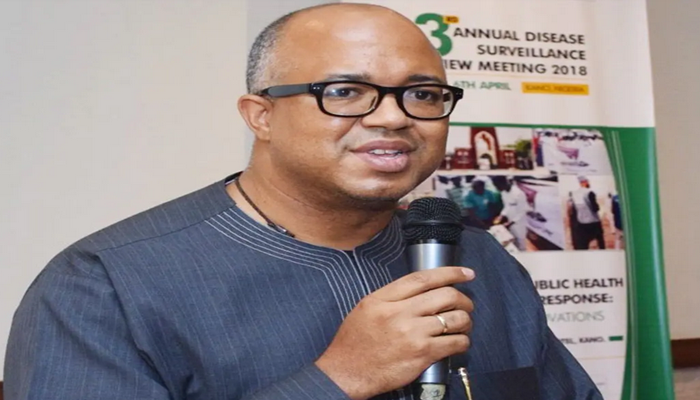
The Director-General of the Nigeria Centre for Disease Control (NCDC), Dr. Chikwe Ihekweazu, has said that one of his biggest challenges in scaling up testing across the country lies in the maintenance of laboratories for testing COVID-19.
He explained that until recently, many laboratory equipment worth millions of Naira and sometimes Dollars, lay fallow because of minor issues requiring repairs. To address this, it has now trained two biomedical engineers leading efforts on the equipment side of activating laboratories.
Speaking during the daily briefing of the Presidential Task Force on COVID-19 in Abuja on Monday, Ihekweazu said: “The maintenance of medical equipment is one of the biggest challenges we have. We are focusing on the laboratory side but anybody working in the health space will tell you the challenges that we have with very expensive pieces of medical equipment are that they often breakdown for one small problem and that is a challenge that we are trying to solve.
“Biosafety cabinet have to be accredited and checked every single year to know whether they still provide a safe environment to enable people work safely. To do that, the people certifying them have to themselves first be certified that they can certify the cabinets.
“When we came into the NCDC four years ago, we realised that there were several pieces of laboratory equipment lying across the country that were not functioning.
“This may be because of one small problem. Therefore, quipment worth millions of Naira, sometimes Dollars, are being wasted. So we started looking for how to train our biomedical engineers.
“We found a partner in a Japanese international cooperation agency and they started supporting us specifically in this regard. We have now trained two biomedical engineers over 6 months in Japan. Japan is well known worldwide for their capacity on things like this. These two colleagues are leading a lot of the efforts on the equipment side of activating labs.
“We have a very diligent process in keeping our equipment working because we know that these equipment are what ultimately leads us to have confidence in the results that we produce.
“Also, we have our medical laboratory scientists that are leading the training on laboratory diagnostics. When will send a team to a state they are made up of typically three people – a biomedical engineer, a molecular laboratory scientist, and one new colleagues to be trained in the process. Two teams left today – one to Katsina and the other to Ilorin to do this.”
He further said: “Yes, we did put an ambitious target of hitting 2 million tests in 3 months and this is the beginning of week three. Sometimes, to drive improvements you have to set hard targets for yourself and that is what we have done.
“There are many bottlenecks to the improvement in testing. Throughout this week we have been working with our global partners in terms of how to unbottle supply chain challenges. Some of these things are going to yield fruits this week.
“There is now a lot of momentum going into supplying us reagents that we really need to scale up testing.
“The next is how do we stimulate the collection of samples from people. We will publish the number of tests per state either today or tomorrow. This will be published so that people can see that it is not just the testing in the lab, you will see that there are many states that don’t have a lab but has tested an incredible number of people compared to the total figure.”






